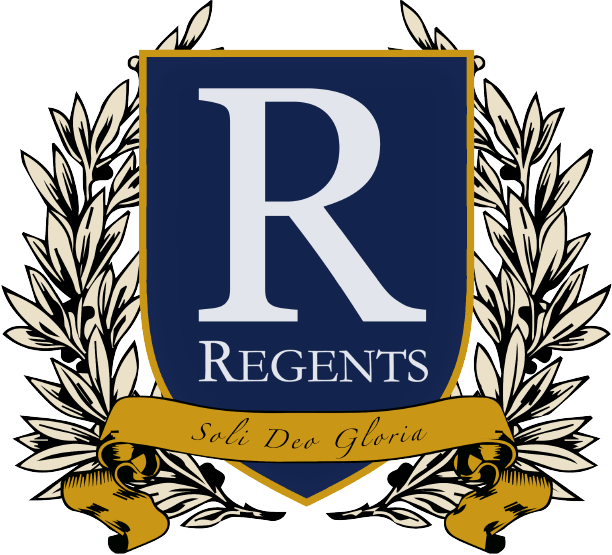
© 2026 Regents School of Charlottesville.
During the first days of kindergarten physical education (PE), you can find Coach Johnson outside, five and six-year olds walking around him as he chants: “Heel-toe, heel-toe.” It’s embodied learning that is foundational to not only the Regents PE program, but to the whole Regents academic curriculum.
“Obviously kids know how to walk but we start them thinking about how they use their bodies,” says Coach Travis Johnson, Athletic Director at Regents. “Prompting them with ‘Heel-toe, heel-toe’ helps them to be more aware of their movement.”
Regents School gives high priority to physical activity. The Office of Disease Prevention and Health Promotion says that children need 60 minutes of activity every day. Accordingly, the Regents school day at the Grammar School ensures that students spend at least one hour of physical activity, preferably outside, every day. This hour is spread across the day in three time blocks to allow students to let off steam and help refocus their minds. In addition to that hour, students spend 30 minutes in physical education class every Monday and Wednesday and have the option of one hour of intramurals throughout the week. Also, students spend active time in classes like music and drama in addition to kinesthetic activities in the classroom.
The PE curriculum is cumulative. For the youngest Regents students, the “heel-toe” lessons progress during the year to skills like jumping, galloping and hopping. It then builds to eye-hand coordination exercises like throwing a ball back and forth from different distances.
From second to sixth grades, the PE program continues eye-hand coordination when students learn to juggle scarves, which are light, slow and easy to catch, and then progress to juggle balls. During these school years, students also participate in the Presidential physical fitness tests, one of shuttle runs, push-ups, “V sit reaches” and mile runs. “That’s a test you cannot lose or get a failing grade on,” Johnson says, “But it helps students see what percentile they are in and chart their progress from year to year.”
Physical activity is also evident in music and drama classes. In music, students learn to tap out rhythms they already know and learn hand motions for the solfege syllables. “By doing the actions of a game along with singing the words of a song, it sets the foundations for singing in parts when they are older because the students have to focus on singing the correct notes while also doing the correct motions,” says Kara Faraldi, the Regents Music and Drama teacher.
In drama class, Miss Faraldi begins to stage plays as soon as possible to make the story more concrete to the students. In order to understand lines from Shakespeare, she instructs fifth and sixth graders to use gestures to show a character’s objectives. For first to fourth graders, students pretend to be different animals or lead with certain body parts which Miss Faraldi then challenges them to integrate into the actions of a character. “Our students are never sitting entirely still for long periods of time!” she says.
Physical activity also extends to the classroom, and it’s something that teachers are assessed for in their teacher observations, says Amy Lindsey, Regents’ Director of Curriculum and Instruction. Regents sixth grade teacher Miss Maley instructs her students to stand with their eyes closed to do mental calculations. When the student knows the answer, he or she acts out a selected motion of the day. “This allows the children to move, and it indicates to me who is comprehending and ready to answer mental math,” she says. “We all enjoy it!"
Miss Maley also keeps a mini trampoline in her classroom and takes it out to let students relieve their energy. When sixth graders have their birthdays, Miss Maley allows them to bounce the number of their new age.
Miss Fleming says there is “definitely” a lot of physical activity in her classroom. In “Grammar Four Corners,” students are assigned each corner a part of speech. When a word is read out, students run to the correct corner. To learn plate tectonics, third graders act out the different movements of the earth. Many early grammar school students also learn to “body spell” where they reach up or down to shape letters with their bodies as they spell words.
Regents has also made physical activity not only a priority but an entrée to learning unique character lessons, which is distinctive to the Regents physical education and sports programs.
“My goal is everyone in PE is not to be the first, but to try,” Johnson says. “If a student doesn’t want to do something, I say: ‘But God gave you arms and legs so you can do these things and so you can use them for his glory.’ I always ask: ‘Did you put forth the effort?’”
Johnson also wants to teach students how to lose: “A lot of times kindergarteners start school and they’ve never lost before,” Johnson says, “So we teach them how to deal with it, that they can’t win all the time, whether someone had a better day or put in more effort.” That lesson on losing feeds into team sports in the later years. Several academic studies conducted in the past 20 years note that those who participate in sports at the high school level grow up to be more engaged citizens.
“Winning is easy, and I love to win just as much as anyone else,” Johnson says, “But our standard is: did I do everything I could possibly do, did I have a good attitude, did I treat my teammates and the other side with respect?”